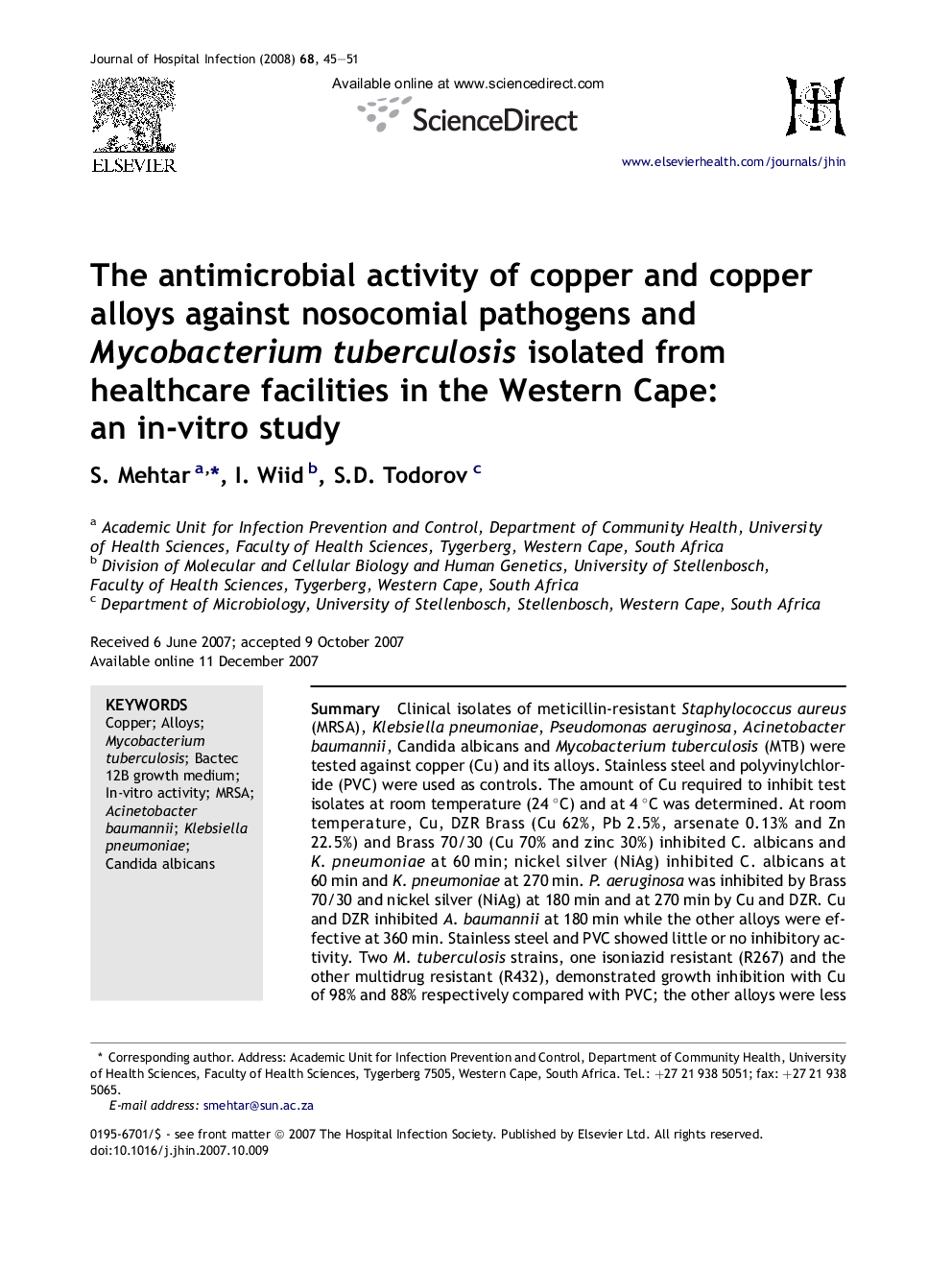| Article ID | Journal | Published Year | Pages | File Type |
|---|---|---|---|---|
| 3373467 | Journal of Hospital Infection | 2008 | 7 Pages |
SummaryClinical isolates of meticillin-resistant Staphylococcus aureus (MRSA), Klebsiella pneumoniae, Pseudomonas aeruginosa, Acinetobacter baumannii, Candida albicans and Mycobacterium tuberculosis (MTB) were tested against copper (Cu) and its alloys. Stainless steel and polyvinylchloride (PVC) were used as controls. The amount of Cu required to inhibit test isolates at room temperature (24 °C) and at 4 °C was determined. At room temperature, Cu, DZR Brass (Cu 62%, Pb 2.5%, arsenate 0.13% and Zn 22.5%) and Brass 70/30 (Cu 70% and zinc 30%) inhibited C. albicans and K. pneumoniae at 60 min; nickel silver (NiAg) inhibited C. albicans at 60 min and K. pneumoniae at 270 min. P. aeruginosa was inhibited by Brass 70/30 and nickel silver (NiAg) at 180 min and at 270 min by Cu and DZR. Cu and DZR inhibited A. baumannii at 180 min while the other alloys were effective at 360 min. Stainless steel and PVC showed little or no inhibitory activity. Two M. tuberculosis strains, one isoniazid resistant (R267) and the other multidrug resistant (R432), demonstrated growth inhibition with Cu of 98% and 88% respectively compared with PVC; the other alloys were less active. Time to positivity (TTP) for R267 was >15 days with Cu and 11 days for the other alloys; with R432 it was 5 days. Effective inhibition of nosocomial pathogens and MTB by Cu and alloys was best when the Cu content was >55%.
